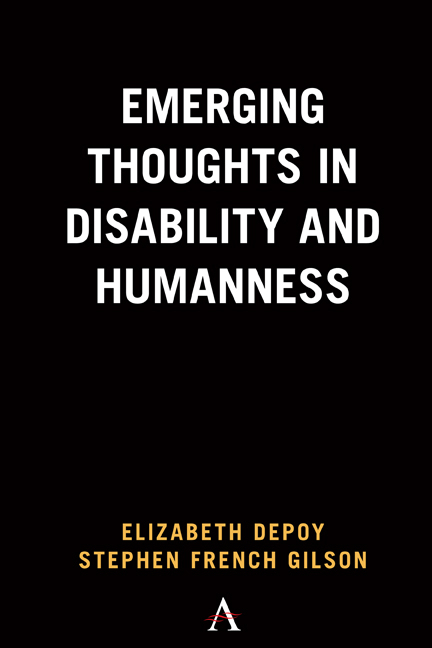Chapter 12 - Negotiating Humanness
Published online by Cambridge University Press: 13 May 2022
Summary
In this final part of the book, we build on our critical work from previous chapters and on contemporary post-postmodernist and posthuman marriages of varied disciplines as frameworks for returning creative substance into rethinking humanness. Given our focus on interpretive reading, we refer to this reinvention framework as humanness literacy. In the chapters that preceded this part of the book we focused on forensic analysis, or what has failed in current humanness and thinking and praxis. We now propose the revision and reevaluation of legitimate humanness and its sidecar, diversity, from categorical to continuous human experience, with renegotiation of the atypical as the entrance into innovative removal of divisive essentialism. Temporal and contextual solutions are proposed and illustrated to conclude this work.
For this project, we assert that reading and negotiating the meaning of humanness and human diversity, thereby developing humanness literacy relevant and just for the twenty-first century, must be a function of informed and uncensored debate, consensus, and/or respectful pluralism in the presence of disagreement. We propose pluralistic theoretical praxis, and contexts in which such activity can and should occur.
Thus, this chapter begins our excitation as we surpass enlightenment humanism to enter a future in which humanness literacy is an expansive reinvention inviting of all bodies. Recall that in previous chapters we have critically wrestled with conceptualizations of humanness, its violators, and responses to violators. Now, we arrive at the raison d’etre for this multilayered forensic examination, which may have been unsettling and sometimes caustic, but intended to be potent in illuminating an alternative, creative direction for reading humanness literacy anew, in which violator status, as articulated by Gabbard below, is duly scolded and eliminated:
The term “human” occupies a central place in disability studies because people living with physical, sensory, intellectual, or psychosocial impairments have so often been deemed to be not fully human or even animals with human faces. (Gabbard, 2015, 98)
Along with Gabbard, Wolfe's reference to Linton and Davis's work resonates:
After the divisive strategies of the past, which sought to stake out and hold on to the specificity of disability as a category we now “need to find a new way of talking about the place of disabled people in the universe and to find the place of disability in some universal.”
- Type
- Chapter
- Information
- Emerging Thoughts in Disability and Humanness , pp. 181 - 194Publisher: Anthem PressPrint publication year: 2022

